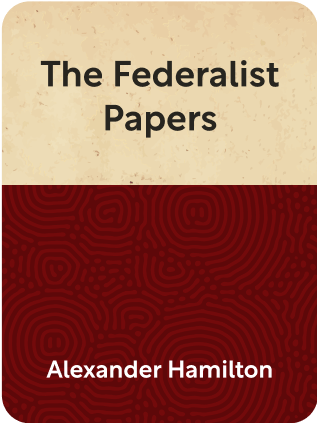

This article is an excerpt from the Shortform summary of "The Federalist Papers" by Alexander Hamilton. Shortform has the world's best summaries of books you should be reading.
Like this article? Sign up for a free trial here .
How do you define a confederation? Is a confederacy a good or bad government structure?
The definition of confederation is an association of independent states or political communities. Confederacies have a weaker national government.
Read more about how to define a confederation and understand the strengths and weaknesses of confederacies.
How to Define Confederation
A confederation is a form of government that loosely unites states or political communities that are otherwise independent. They are an inherently unstable and weak form of government. Under a confederacy, the overarching state tends to lack the proper authority to perform important central functions like raising an army, administering justice, collecting revenue, or regulating coinage, because its constituent members are too powerful and can block any initiative.
There is a general problem that can define confederations (all of them)—the central government could act upon the states of which it was composed, but not upon the actual people of those states. The states, not the people, were the fundamental political units. The Articles of Confederation were no exception.
As a confederacy, the Articles of Confederation created an association of independent states. It was an inherently unstable and weak form of government. The central government lacked the strength to perform important functions like raising an army, administering justice, collecting revenue, or regulating coinage, because the individual states were too powerful and could block any initiative.
This issue was one that could define confederation governments going back to the days of ancient Greece. They were beyond salvation because the entire system of government they created was inherently unworkable; they needed to be discarded and replaced wholesale.
The Experience of the Greek Confederacies
Unfortunately for Americans living under the Articles of Confederation, the historical evidence showed that confederacies were likely to result in dissolution and chaos.
The city-states of ancient Greece often banded together in leagues, usually to protect themselves against foreign threats. Two such leagues were the Amphictyonic League and the Achaean League. Although the city-states in these leagues had nominally equal status, the larger and more powerful ones like Athens inevitably came to occupy a dominant position within the confederation.
Because of their independence, the cities had few interests in common and proved unwilling to come to one another’s defense or contribute funds for the common good. Foreign powers like Macedon, Persia, and Rome exploited these divisions, resulting in conquest, annexation, and the destruction of ancient Greek liberty.
These disastrous results were a direct result of the weak central structure of the leagues, which delegated too much power to the individual cities and gave the league itself no enforcement mechanisms to bring recalcitrant members to heel. Publius warned that the same fate could befall the United States if the Articles of Confederation weren’t scrapped and replaced with a stronger framework for national government.

———End of Preview———
Like what you just read? Read the rest of the world's best summary of Alexander Hamilton's "The Federalist Papers" at Shortform .
Here's what you'll find in our full The Federalist Papers summary :
- The genius of the founding fathers in how they designed the United States Constitution
- Why it was critical for the United States to form a union rather than stay separated as colonies
- How Alexander Hamilton anticipated social issues that are still relevant today






